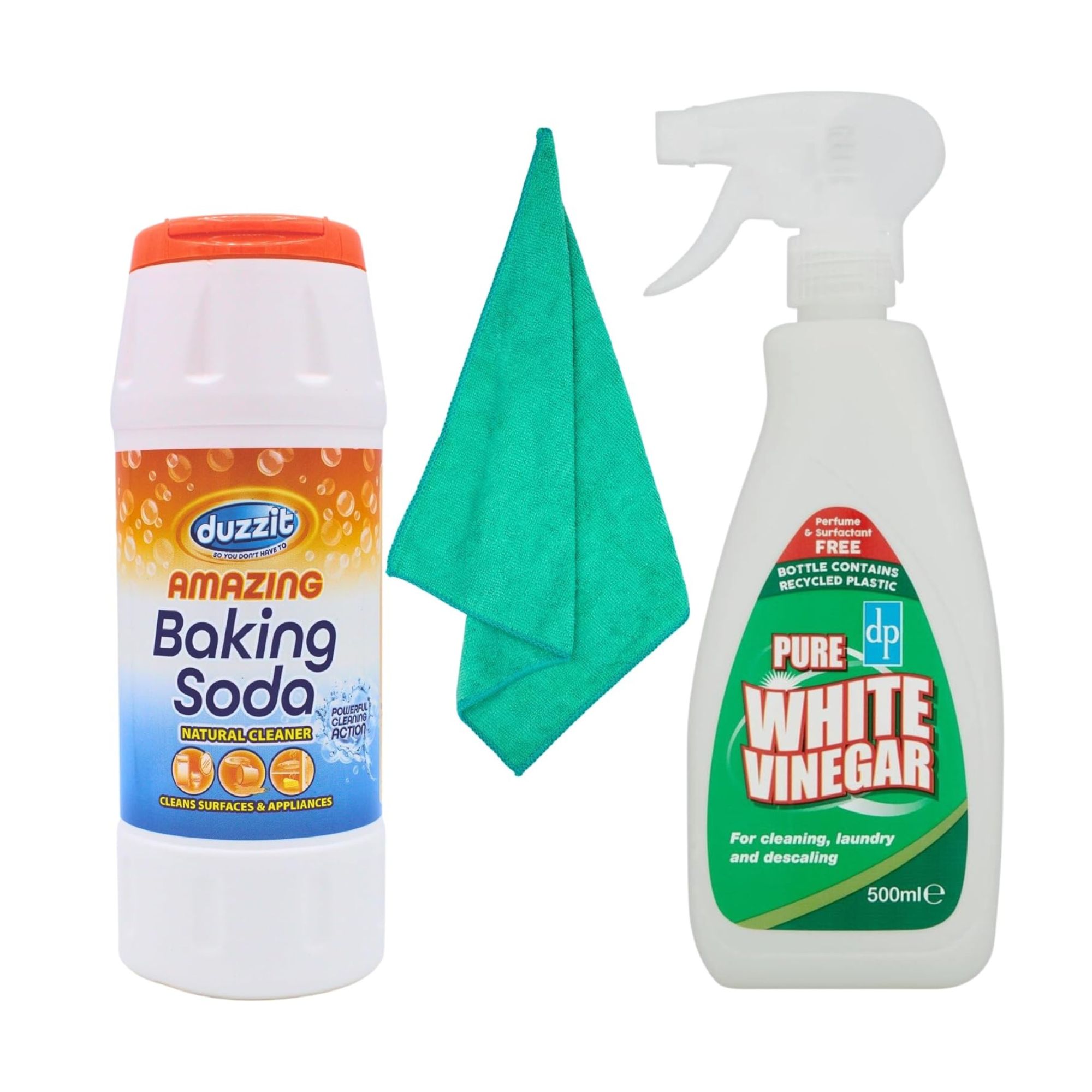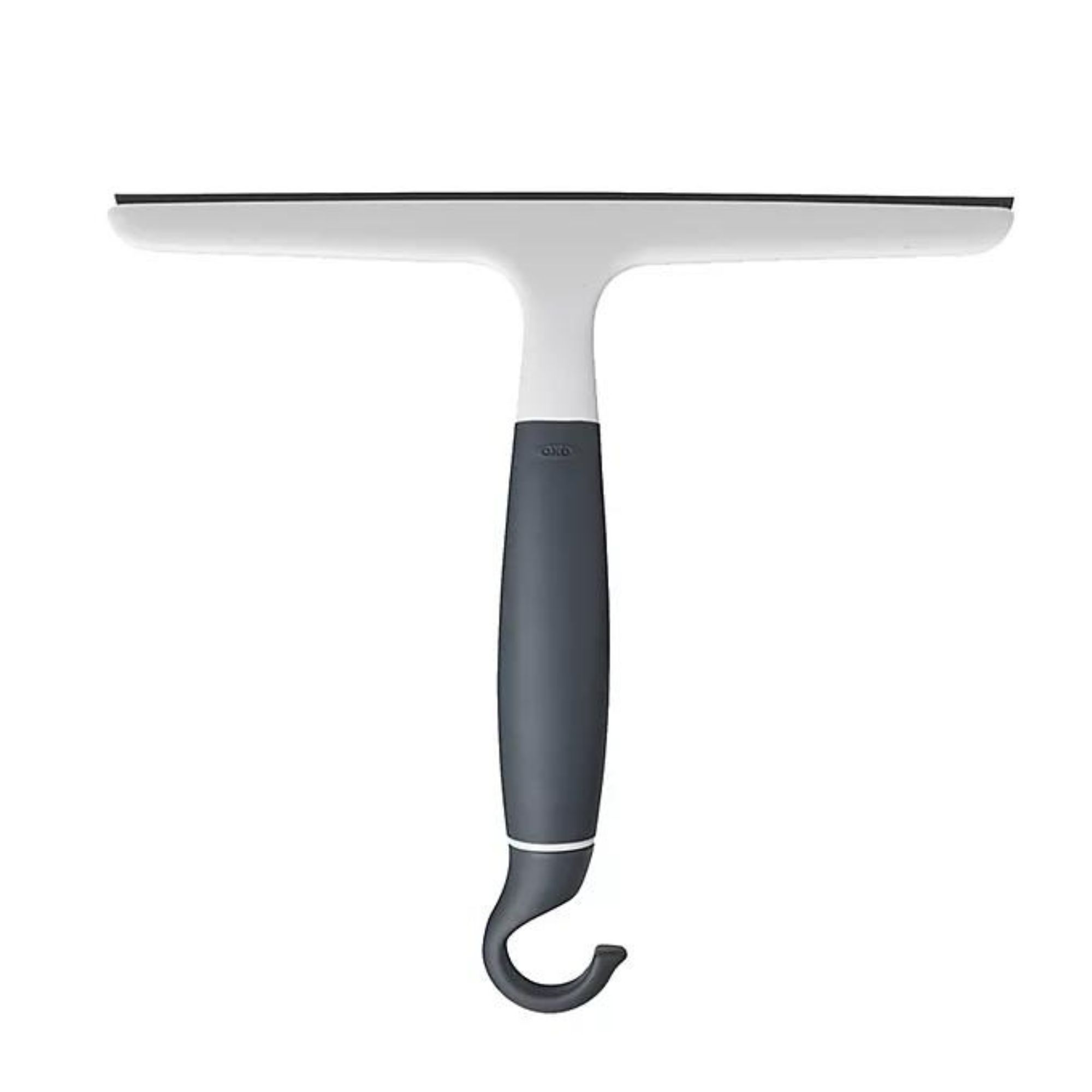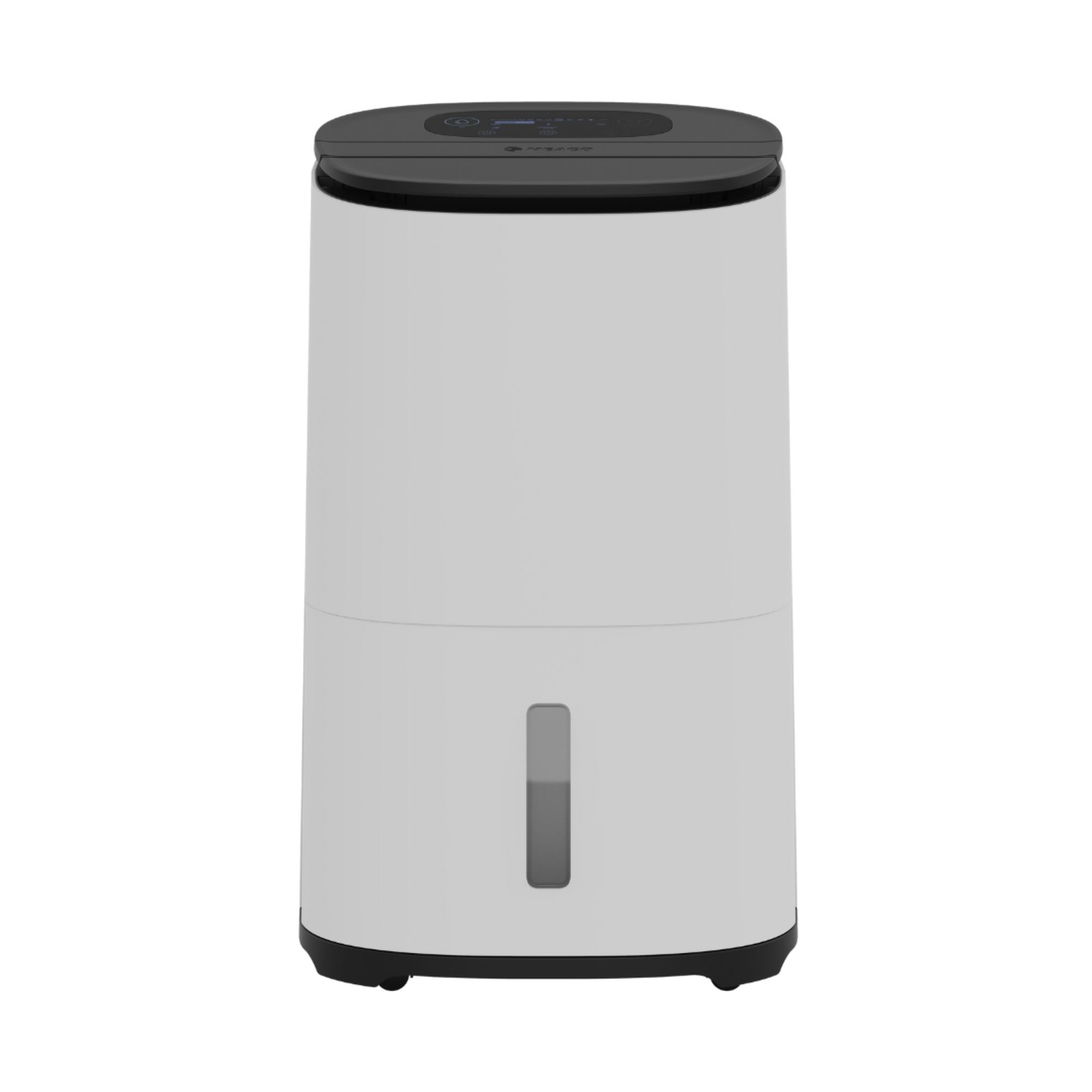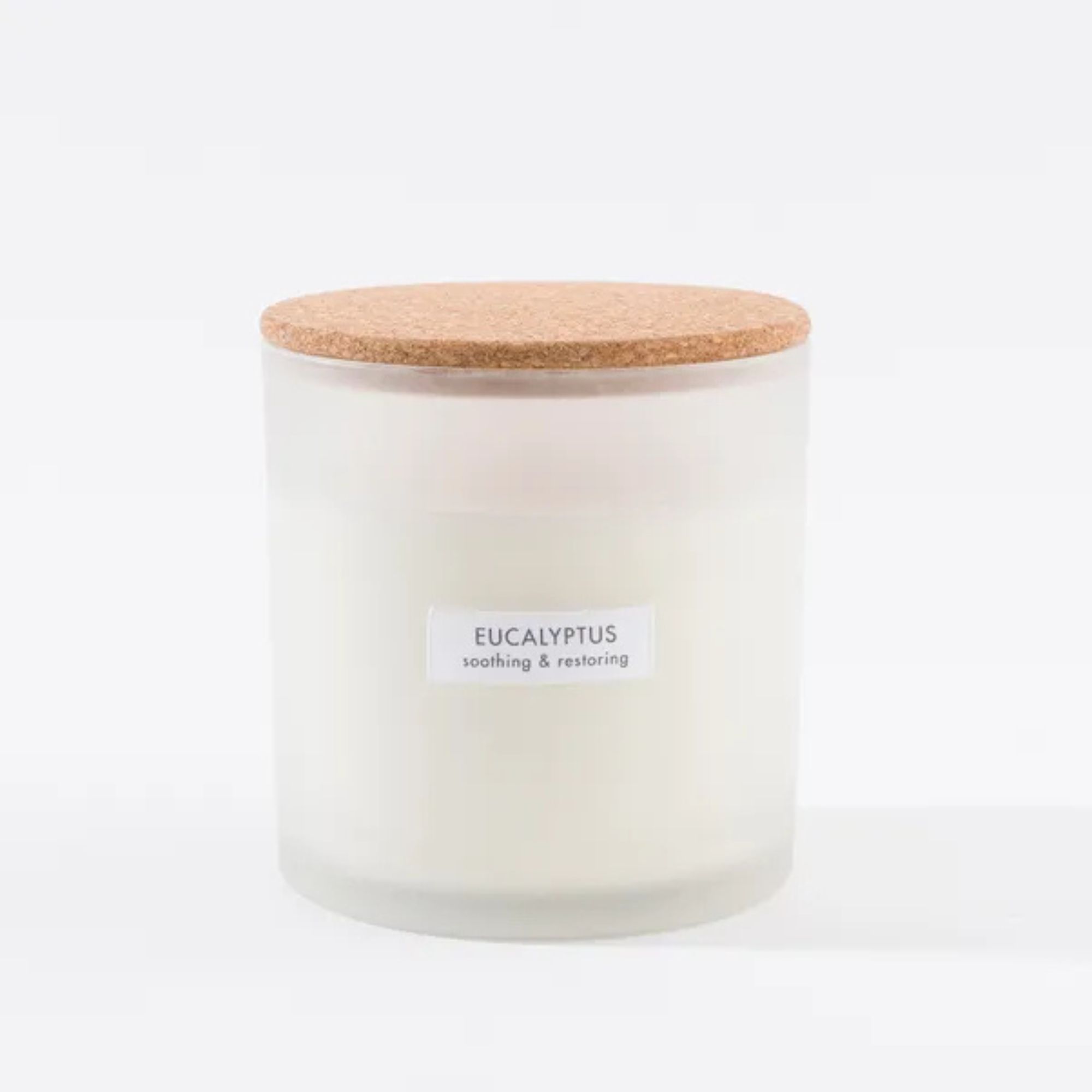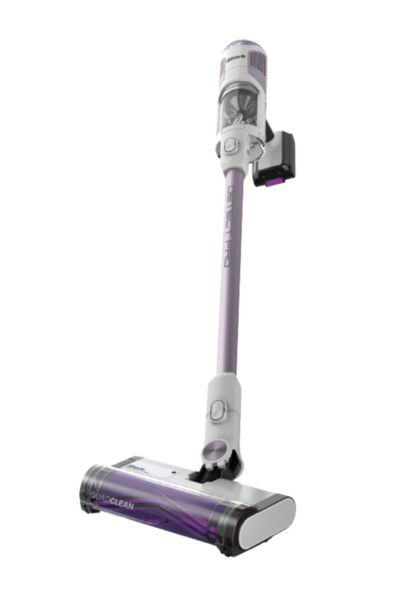How to get rid of drain flies - 5 ways to ensure that these pests (and their eggs) don’t come back
Drain flies can lay up to 200 eggs at a time, so you need to act quickly
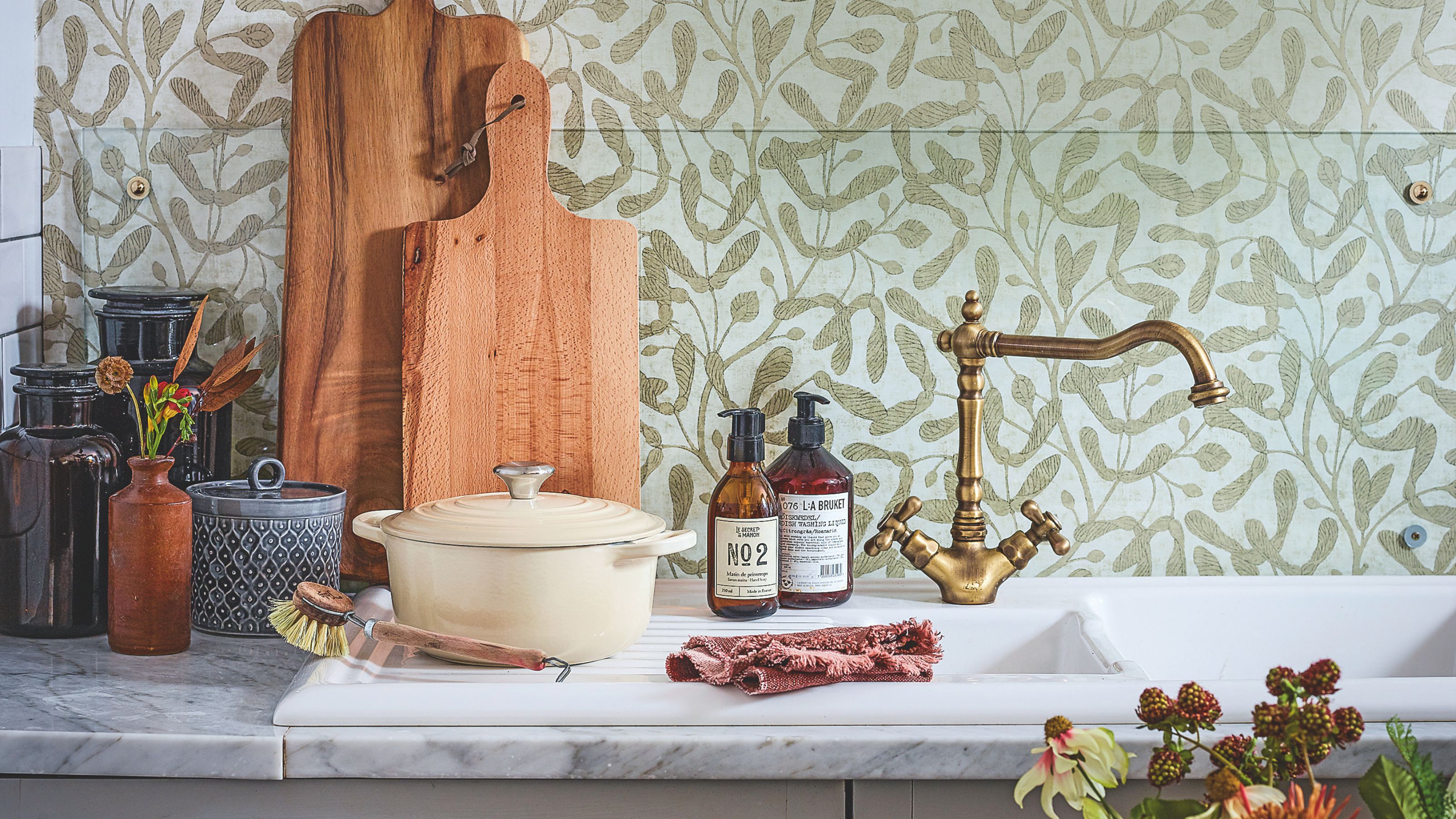

Picture this: you go to wash your dirty plates or jump in the shower, and you’re greeted by tiny creatures flitting in and out of the drain. These pesky flies are enough to give anyone the heebie-jeebies, which is why everyone should know how to get rid of drain flies.
Although you might not pay attention to your household drains, we’re here to tell you that smelly drains are the least of your worries. As Alex Woods at Victorian Plumbing explains, ‘Drain flies, also known as gnats, thrive in moist environments, making kitchen and bathroom sinks prime targets.’ And as a single drain fly can also lay 200 eggs throughout its short lifespan, things can quickly get out of hand.
Of course, getting rid of pests as soon as possible is key, but you also need to do everything you can to keep them away for good. That’s why we’ve reached out to pest experts to help you understand how to get rid of drain flies… and stop them coming back.
1. Keep your drains clean
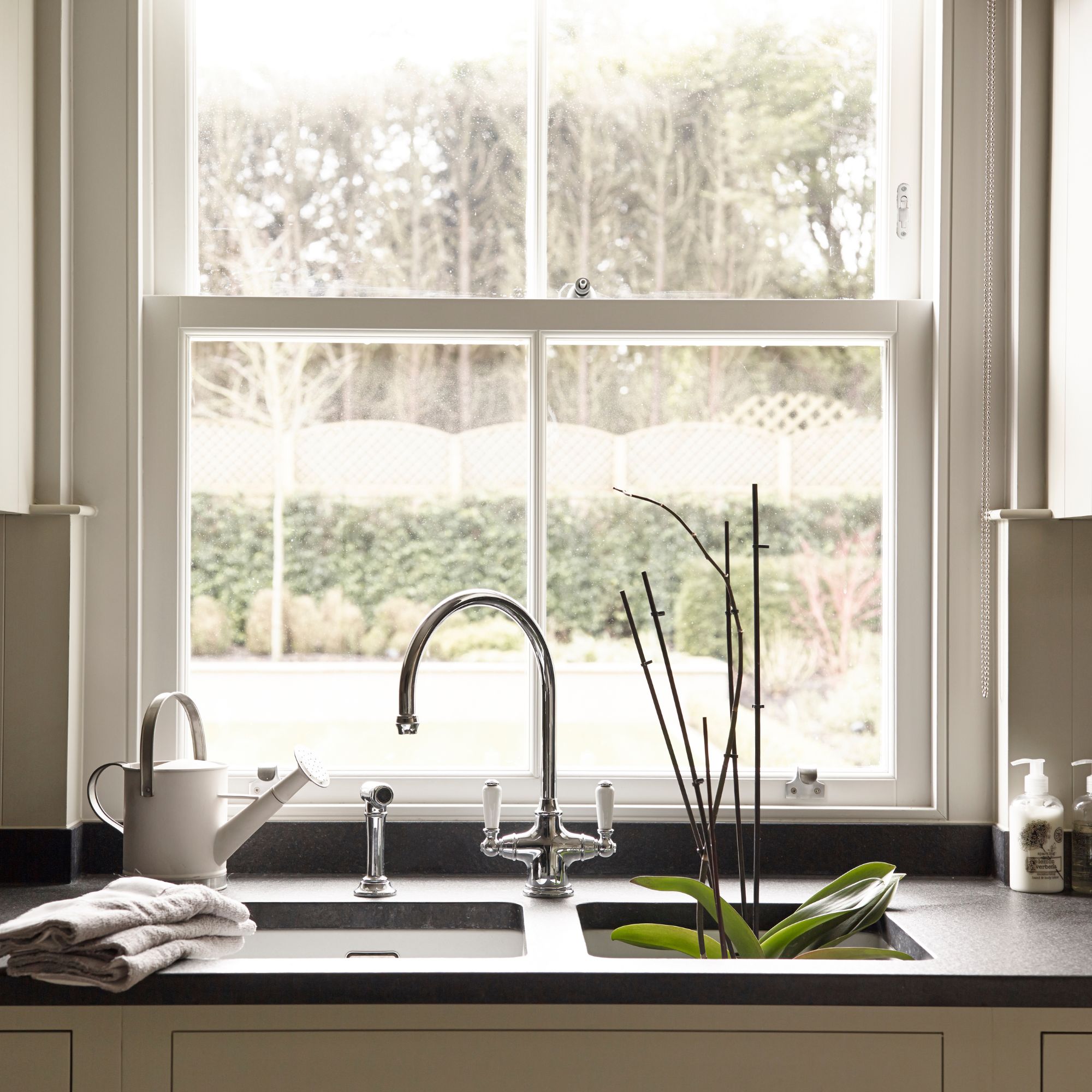
In most cases, pouring a jug of boiling hot water down the drain should be enough to eliminate drain flies. However, this doesn’t stop them from coming back - or any leftover eggs from hatching. That’s why you must focus on prevention instead of just the cure.
To do this, you need to keep your drains clean. Whether you want to clean a shower drain or give your kitchen sink a once-over, the good news is that you can use natural cleaning products for this.
Andy Ellis at Posh.co.uk explains, ‘One of the best ways to get rid of these pesky flies is to remove their food source. A simple solution of equal parts baking soda and vinegar. These natural ingredients will encourage the breakdown of organic matter that is sitting in your pipes. Let the baking soda and vinegar sit for a bit and then flush it away with boiling water once a day for a week to remove remaining flies.’
If your drain is clogged, this baking soda and vinegar remedy should free any sludge or blockages that could lead to further moisture or clogging. So, it’s a win-win.
Sign up to our newsletter for style inspiration, real homes, project and garden advice and shopping know-how
2. Get rid of standing water

It’s easy to overlook standing water in your kitchen or bathroom. But after washing your plates or your hair, you should aim to dry off these areas as much as possible.
Doing this is less about the drain flies and more about their eggs, though. As Daniel Steward, Managing Director at Shield Pest Control, explains, ‘Drain flies are typically a temporary issue if hygiene standards are maintained as adults have a lifespan of only about two weeks.’ But these eggs can stick around much longer, creating a vicious reproductive cycle that’s made worse by standing water.
Alex warns, ‘Standing water provides the perfect breeding ground for drain flies to lay their eggs. To prevent an infestation, ensure no excess water is left in sinks or bathtubs, and dry these areas thoroughly after use.’
However, drain flies aren’t just attracted to your sink or bath; there are other areas of the home that offer standing water.
‘Overwatered houseplants can also be a hotspot. Moisture buildup inside your home from broken pipes or blocked sinks is another issue, so it's important to check for leaks and address any plumbing problems quickly to avoid water accumulation.’
Of course, this standing water can also lead to a buildup of condensation and damp, so you want to avoid this in your home anyway. So, wipe down your sink after washing up, dry your bath or shower when you’ve finished, and watch for the signs of damp in your home.
3. Reduce moisture levels

Although drain flies can make an irritating appearance throughout the year, you’re more likely to see them in the winter months as they thrive in wet and moist environments. Because of this, you should aim to reduce moisture levels to get rid of drain flies.
Alex says, ‘Drain flies prefer humid environments, so keeping your home dry can help to deter them. Use dehumidifiers in areas prone to moisture and ensure proper ventilation in bathrooms and kitchens by opening windows. Since gnats are most active during the day, especially around mid-morning and dusk, keeping windows closed during these times can also help.’
While we always suggest having a dehumidifier on hand to help with everyday life, we understand that this isn’t always possible. Thankfully, there are other ways to dry out a room without a dehumidifier.
In fact, you could use non-electric moisture absorbers instead, which are much more affordable and won’t affect your energy bills. The Ideal Home team’s favourite moisture absorber we've tried is the Absodry Duo Family, which also looks incredibly stylish.
4. Use natural repellents
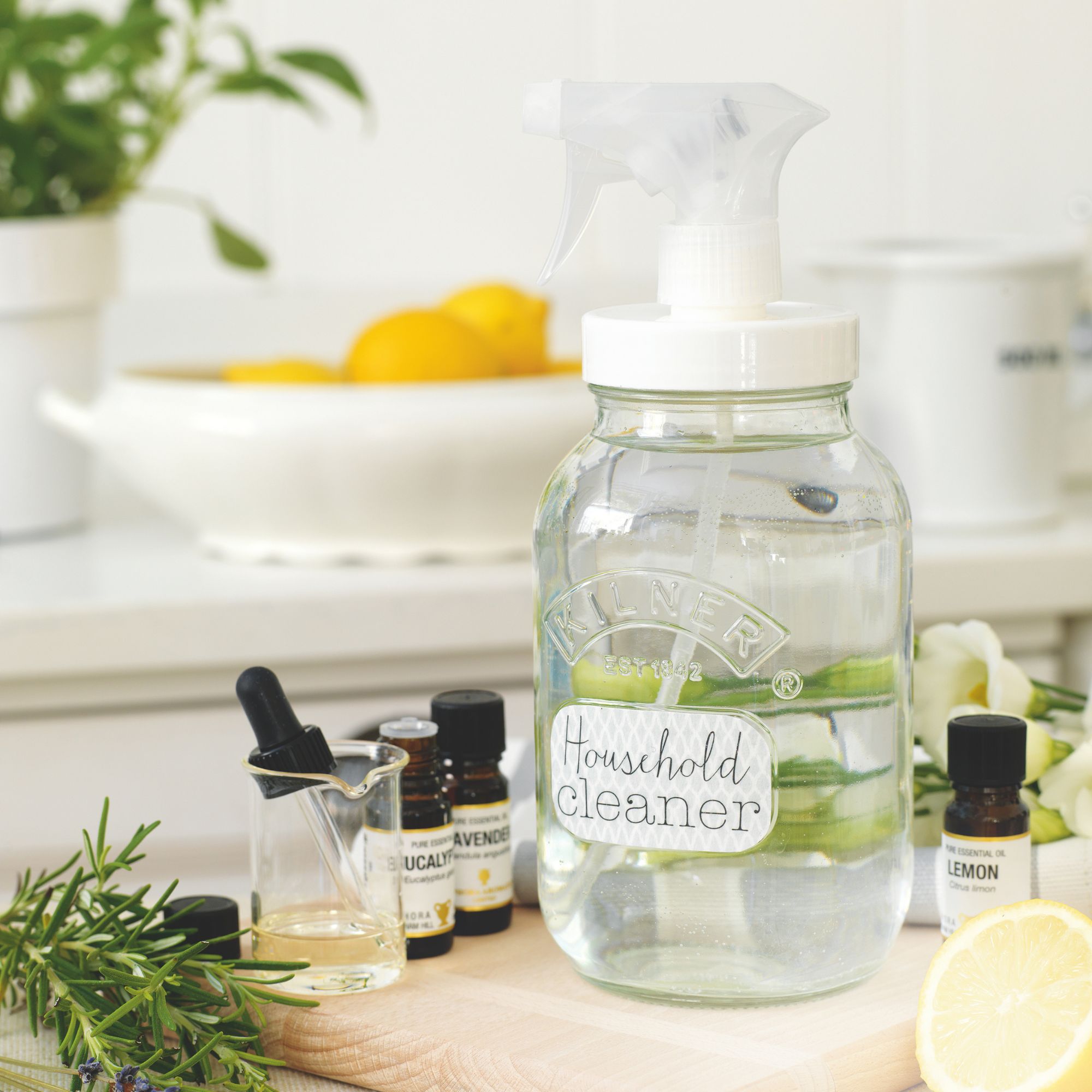
If you regularly use essential oils for cleaning, you should also be equipped to get rid of drain flies. In fact, you can use these scented oils as natural drain fly repellents and keep them at bay for good.
‘Natural repellents can be highly effective in keeping drain flies at bay, and essential oils such as eucalyptus, lavender, and peppermint work well for repelling gnats. Citronella candles are also a great option for deterring various pests. Try placing cotton balls soaked in essential oils near areas where gnats tend to gather.’
Although these natural remedies are all non-toxic and safe to use in the home, you could go the extra eco-friendly mile and grow your own citronella plants instead. This way, you can use them to keep a myriad of pests away from your home.
5. Clean, clean, and clean again

You probably don’t need us to tell you the importance of having a clean and tidy home, but cleaning regularly can also help to get rid of drain flies. So, keep your vacuum cleaner handy and stock up on cleaning supplies.
‘Drain flies are attracted to dirt, organic material, and moisture, so maintaining a clean home is key to keeping them away. Regular vacuuming removes food crumbs while dusting clears away dust and grime that can become breeding grounds for gnats.’
But cleaning isn’t the only thing that can help. Decluttering your home can also reduce the chances of a drain fly infestation, as they’ll be less inclined to lay their eggs in a clean and clear house.
FAQs
Why do I suddenly have drain flies?
Drain flies rarely enter your home without a reason. They’re attracted to moist, humid environments and could be the result of one of the following:
- Leaking pipes.
- Standing water.
- Clogged drains.
- Unused toilets.
- Inactive household (i.e. you’ve been away on holiday).
Does bleach kill drain flies?
Yes, bleach can kill drain flies, but most experts would advise against using this method to get rid of them. Bleach can be extremely corrosive, and while it may kill the flies it meets along the way, it may also affect your plumbing.
If mixed with other cleaning agents (such as vinegar and baking soda), bleach can also create dangerous fumes that should be avoided at all costs. So, it’s best to use baking soda, vinegar and other natural methods to kill drain flies instead.

Lauren Bradbury has been the Content Editor for the House Manual section since January 2025 but worked with the team as a freelancer for a year and a half before that. She graduated with a Bachelor’s degree in English and Creative Writing from the University of Chichester in 2016. Then, she dipped her toe into the world of content writing, primarily focusing on home content. After years of agency work, she decided to take the plunge and become a full-time freelancer for online publications, including Real Homes and Ideal Home, before taking on this permanent role. Now, she spends her days searching for the best decluttering and cleaning hacks and creating handy how-to guides for homeowners and renters alike, as well as testing vacuums as part of her role as the Ideal Home Certified Expert in Training on Vacuums, having spent over 110 hours testing different vacuum models to date!
